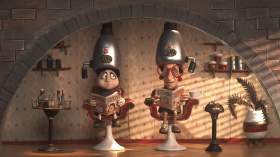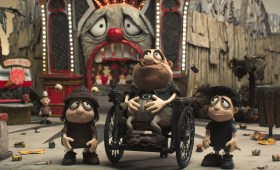Image via Pixabay
Last week was Australian Engineering Week. School children around the country received an extra dose of education’s latest hot acronym, STEM (Science, Technology, Engineering, Maths).
Undoubtedly, these are essential skills for the future of humanity and the sharp increase in attention they have received in the past generation has profoundly affected our physical lives. How we work, travel, communicate and even how long we’ll live has changed more in the last 30 years than the previous 3000 generations combined. That’s frankly incredible.
Technological and medical progress is inevitable for Australians and feels like it will only keep accelerating. But all this advancement in the physical sense are merely conduits for the real content: the culture, emotion and relationships of our lives – the people who surround us, how we define ourselves and treat others, and what we aspire to be individually and collectively.
If the content of our lives is reduced to collecting new gadgets to watch cat videos on then we’re basically doomed.
It’s the breadth of your life that really matters, rather than the length of it, and it’s what we communicate rather than how we communicate that determines the richness of our lives.
Yet while STEM subjects get increasing attention and targeted Federal Government funding, the subjects that teach us our emotional, intellectual and cultural foundations and help us developed our human skills – the arts and humanities – feel like they have been reduced to secondary status in our education system.
Both the STEM subjects and the arts/humanities are borne of our innate curiosity in both the outer and inner worlds we inhabit, the physical and mental. They are two sides of the same coin and profoundly affect one another. This is too easily forgotten.
Let’s adopt an even better acronym – STEAM –acknowledging the equal value of Arts in the development of our children’s minds.
The collaboration, innovation and disruption that we need to foster in future generations, to keep us producing the new ideas, approaches and products we’ll need tomorrow, will only come from cross-discipline pollination, with engineers and artists and scientists and creatives of all persuasions, working together. Then we’ll create real progress.
After all what value has the STEM without the flower, which gives the beauty and the potential for the future? Arts and humanities are essential to a rounded education for future generations of Australians.





